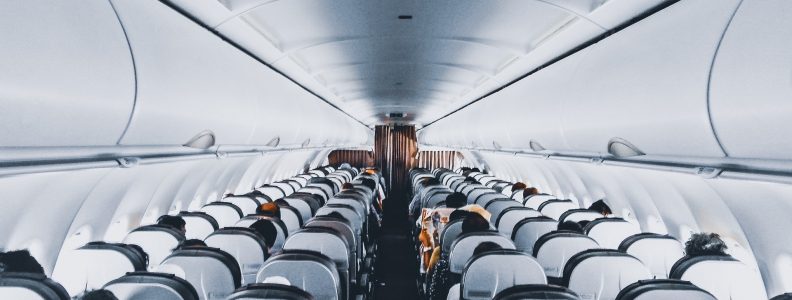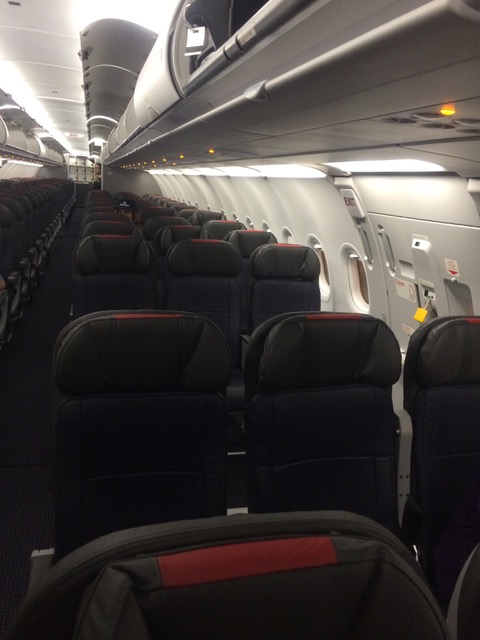
How to Clean Your Space While Flying and Stay Healthy in the Air
It is important to take the extra steps to sanitize and disinfect surfaces while traveling, especially during the coronavirus outbreak. At Abrams Landau law, we want you to be safe while traveling and flying, whether it’s in an airport, airplane, bus, train or car.
So, here are some helpful tips on how to best disinfect your space on an airplane and stay healthy:
• Disinfect Hard Surfaces
When you first get to your seat, with clean hands, wipe down all hard surfaces with a disinfectant wipe. Hard surfaces can include your seatbelt buckle, arm rests, screen, seat back pocket, tray table and your actual seat if it is hard and nonporous. If it is made of fabric, do not try to wipe it down as using wipes on upholstered seats could actually spread germs rather than kill them. If your seat is not a hard, nonporous surface and it is upholstered (or fabric), pack and use a seat and tray table cover.
Make sure to read and follow all the instructions on the disinfectant wipe package about how long the surface needs to stay visibly wet. It should be at least 30 seconds, but could be longer depending on the product. Do not rush this process because this is when the germ-killing happens.
Also, please be careful when using any chemicals. The CDC has reported a spike in poisoning from people using disinfectants improperly in response to COVID-19.

• Wash Your Hands and Don’t Touch Your Face
Just because you’ve disinfected everything around you does not mean that you are safe. In fact, it can give you a false sense of security, making you put your guard down. You should consistently wash your hands thoroughly for 20 seconds or longer, and if that’s not possible, use hand sanitizer. Whether you wear gloves or not, it’s important to not touch your face, especially your eyes, nose and mouth, because that is how viral particles travel. Even though you’ve wiped down your surroundings with a disinfectant wipe, touching the same surfaces after someone who is infected (not only with COVID-19 but even the flu) coughed or sneezed near or on it could transfer the droplets from their cough or sneeze that was on the surface to your hands and then to anything else you touch.
• Wear a Mask
Whether you’re traveling during the COVID-19 pandemic or not, if you are feeling sick and/or worried about getting sick, it would be helpful to wear a mask of some sort to prevent the spread of any infection.
The CDC recommends “wearing cloth face coverings in public settings where other social distancing measures are difficult to maintain…CDC is additionally advising the use of simple cloth face coverings to slow the spread of the virus and help people who may have the virus and do not know it from transmitting it to others.” A significant portion of individuals with COVID-19 lack symptoms (“asymptomatic”) and that even those who eventually develop symptoms (“pre-symptomatic”) can transmit the virus to others before showing symptoms. Read more here on the CDC website.
If you are using a homemade cloth face covering it…
Your cloth face covering should:
• Reach above the nose, below the chin, and completely cover the mouth and nostrils
• Fit snugly against the sides of the face
• Be made of multiple layers of fabric that you can still breathe through
• Be able to be laundered and machine dried without damaging the material or shape
And do not buy surgical masks to use as a face covering. Those are intended for healthcare workers and first responders. Many items you may already have in your home can be used to create face coverings. Read more here on the CDC website.
• Choose a Window Seat
According to a New York Times post, “A study from Emory University found that during flu season, the safest place to sit on a plane is by a window. Researchers studied passengers and crew members on 10 three-to-five hour flights and observed that people sitting in window seats had less contact with potentially sick people.”
• Stay Hydrated
Be sure to drink plenty of water while flying as there is low humidity, or extreme dryness, in airplane cabins. Dehydration can cause irritation and dryness for skin, eyes and mouth and fatigue, decreased blood pressure, confusion, and more. Avoid sugary drinks, alcohol, caffeine and pack healthy snacks.
However, if you are reading this during the COVID-19 pandemic, please refrain from non-essential flying and travel if possible. It is important that we continue to maintain social distancing and caution to reduce the number of people infected by the novel coronavirus. Your safety and health is a priority.
If you or someone you know was injured due to no fault of your own while traveling or while working at an airport, please give us a call (703-796-9555) or email us at Abrams Landau, Ltd.
